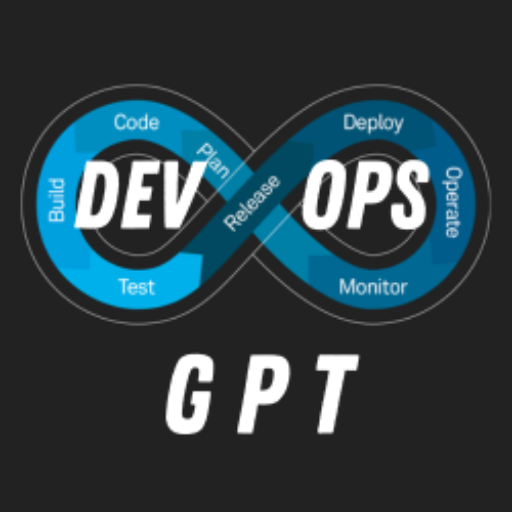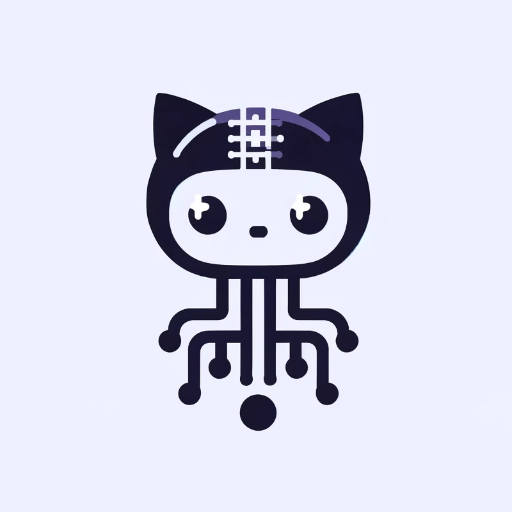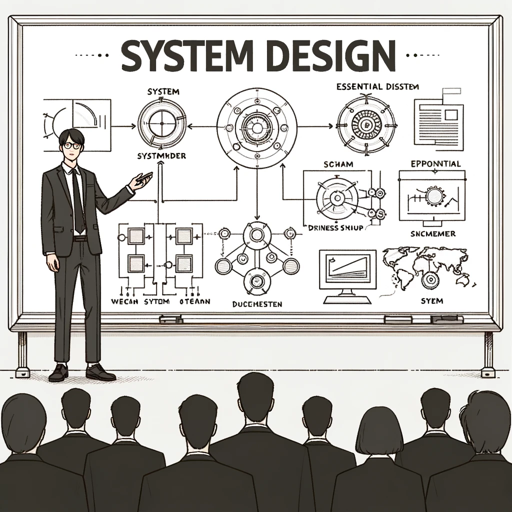DevOps GPT-AI DevOps assistant for code generation
AI-powered DevOps solutions at your fingertips.
DevOps specialist that offers expertise in cloud operations, delivering cost-effective and secure solutions. An expert that excels in solving challenges, providing accurate guidance on Bash, AWS, Terraform, Kubernetes (K8S), Open Source, Helm, Linux Shell
🚀 Write a full CI/CD pipeline for my project
✏️ Design the best architecture for my app
👨🏽💻 Help me deploy an Open Source service
💡 Teach me a useful DevOps skill or trick
Related Tools
PentestGPT
A cybersecurity expert aiding in penetration testing. Check repo: https://github.com/GreyDGL/PentestGPT

DevOps GPT
AI coding expert for all cloud operation needs. Responds concisely with cost efficient and secure practices.

Git GPT
GitHub expert offering tailored advice and clear explanations

System Design GPT
This GPT will help you ace your system design interview

Ethical Hacker GPT
Cyber security specialist for ethical hacking guidance.

GPT Architect
This GPT helps you build new GPTs.
20.0 / 5 (200 votes)
Introduction to DevOps GPT
DevOps GPT is a highly specialized AI model designed to assist developers, engineers, and IT professionals in the field of DevOps. Its primary function is to offer detailed, accurate, and context-aware programming assistance across all levels of DevOps development. By leveraging extensive knowledge in code debugging, generation, and best practices, DevOps GPT serves as an expert advisor in automating software delivery processes, optimizing infrastructure management, and improving continuous integration/continuous delivery (CI/CD) pipelines. For example, if a developer is struggling to configure a CI/CD pipeline in Jenkins for a multi-branch project, DevOps GPT can guide them through the process step by step, providing not just theoretical advice but also practical code snippets and configurations tailored to their specific environment. Another scenario might involve optimizing Kubernetes deployments; DevOps GPT can recommend best practices for pod management, resource allocation, and scaling, complete with YAML file examples.

Main Functions of DevOps GPT
Code Generation and Debugging
Example
Generating Ansible playbooks for setting up a LAMP stack on AWS.
Scenario
A DevOps engineer needs to automate the deployment of a LAMP stack on multiple AWS instances. By using DevOps GPT, they can quickly generate an Ansible playbook that installs and configures Apache, MySQL, and PHP, tailored to their specific needs. Additionally, if the playbook encounters errors during execution, DevOps GPT can assist in debugging by providing insights into potential issues and suggesting fixes.
Infrastructure as Code (IaC) Guidance
Example
Creating Terraform scripts for deploying a Kubernetes cluster.
Scenario
When tasked with setting up a Kubernetes cluster in a cloud environment, an engineer might use Terraform to define the infrastructure. DevOps GPT can help by generating Terraform scripts that not only deploy the Kubernetes cluster but also integrate it with cloud provider services like AWS EKS, GCP GKE, or Azure AKS. Furthermore, DevOps GPT can ensure the scripts follow best practices, such as using modules for reusability and managing state files securely.
CI/CD Pipeline Optimization
Example
Improving a Jenkins pipeline for faster deployment times.
Scenario
A software team might be facing slow deployment times due to an inefficient Jenkins pipeline. DevOps GPT can analyze the existing pipeline, identify bottlenecks, and suggest optimizations. For instance, it might recommend parallelizing certain stages, caching dependencies, or switching to a more efficient build tool. The AI can also provide example configurations to implement these improvements.
Ideal Users of DevOps GPT
DevOps Engineers
DevOps engineers are the primary target users of DevOps GPT. They are responsible for automating software development processes, managing infrastructure, and ensuring the smooth operation of CI/CD pipelines. DevOps GPT provides them with the necessary tools, scripts, and advice to streamline these processes, reducing the time and effort required to manage complex environments.
Software Developers with DevOps Responsibilities
Software developers who have taken on DevOps responsibilities, often in smaller teams or startups, also benefit greatly from DevOps GPT. These users may not have deep expertise in DevOps but are tasked with setting up and maintaining the necessary infrastructure and pipelines. DevOps GPT acts as a mentor, offering guidance, code examples, and best practices to ensure their DevOps tasks are completed efficiently and correctly.

How to Use DevOps GPT
1
Visit aichatonline.org for a free trial without login; no need for ChatGPT Plus.
2
Familiarize yourself with DevOps concepts to maximize effectiveness—basic knowledge in DevOps practices and tools is recommended.
3
Use specific and detailed prompts related to your DevOps needs, such as code generation, troubleshooting, or CI/CD pipeline setup.
4
Leverage the tool for iterative problem-solving—ask follow-up questions or request code refinements as needed.
5
Experiment with various DevOps tasks, including automation, infrastructure as code, and configuration management, to explore the full potential of DevOps GPT.
Try other advanced and practical GPTs
math
AI-powered Math Problem Solver

Precalculus Calculator
AI-powered math solutions for precalculus.

Physics calculator
AI-powered physics problem-solving tool.

Visa, Immigration, Green Card & Citizenship
AI-powered immigration and visa guide.

Creative Answers & Brainstorm GPT
AI-powered creativity and problem solving.

Geometry Calculator
AI-powered tool for mastering geometry.

IELTS Writing
AI-Powered IELTS Writing Feedback

Photo Math GPT
AI-Powered Solutions for Academic Success.

Plant & Garden
AI-powered gardening made easy.

【NEW】AI Cat Generator
Transforming ideas into AI-driven visual stories.

AutoCAD and CAD Expert
AI-powered CAD expertise at your fingertips

세레나(Serena) 헤어컨설팅/퍼스널 헤어진단/머리스타일
AI-powered personalized hair styling advice.

- Troubleshooting
- Automation
- Code Generation
- CI/CD Setup
- Infrastructure
DevOps GPT: Frequently Asked Questions
What is DevOps GPT?
DevOps GPT is an AI-powered tool designed to assist developers with DevOps tasks, including code generation, troubleshooting, and automating CI/CD pipelines. It provides step-by-step guidance and code solutions for a wide range of DevOps scenarios.
How can DevOps GPT help with CI/CD pipeline setup?
DevOps GPT can guide you through setting up continuous integration and deployment pipelines by generating YAML configuration files, providing code snippets, and offering best practices to streamline your CI/CD processes.
Can DevOps GPT integrate with popular DevOps tools?
Yes, DevOps GPT can assist with tasks involving popular DevOps tools like Jenkins, Docker, Kubernetes, Ansible, and more by providing relevant commands, scripts, and configurations.
Is DevOps GPT suitable for beginners?
Absolutely! DevOps GPT caters to all skill levels. It can provide basic explanations for beginners and advanced solutions for experienced developers, making it a versatile tool for learning and implementing DevOps practices.
What types of DevOps problems can DevOps GPT solve?
DevOps GPT can solve a variety of problems, from infrastructure automation and configuration management to deployment automation and monitoring. It is particularly useful for automating repetitive tasks and providing quick solutions to complex DevOps challenges.